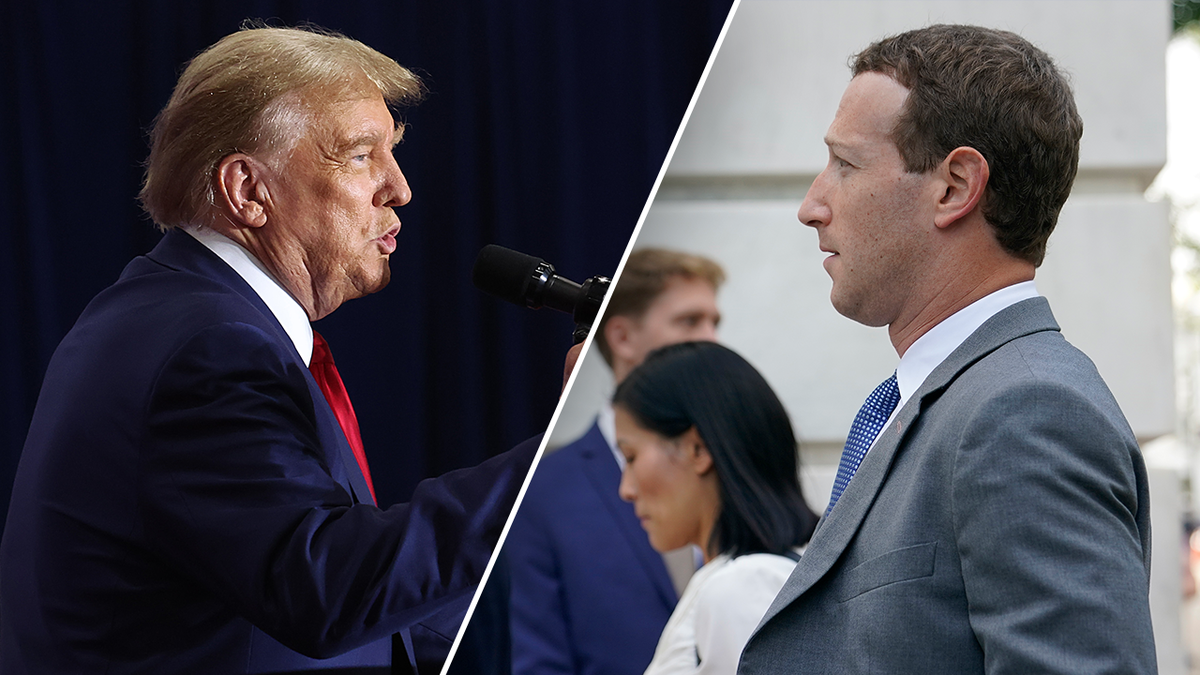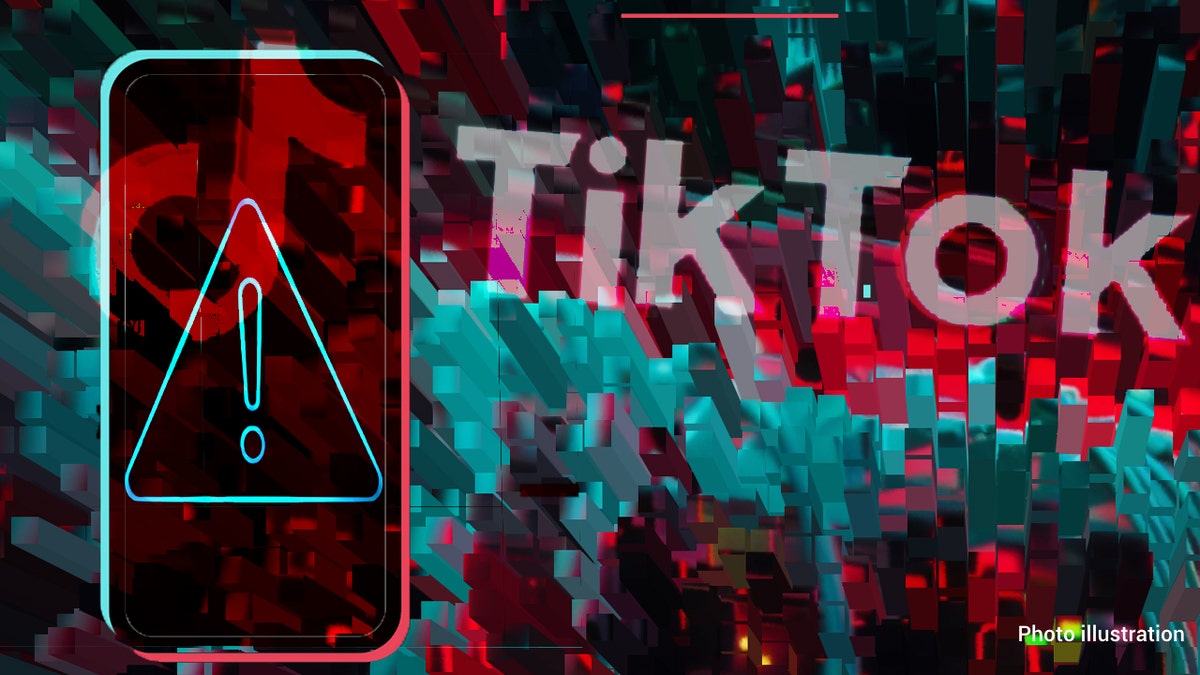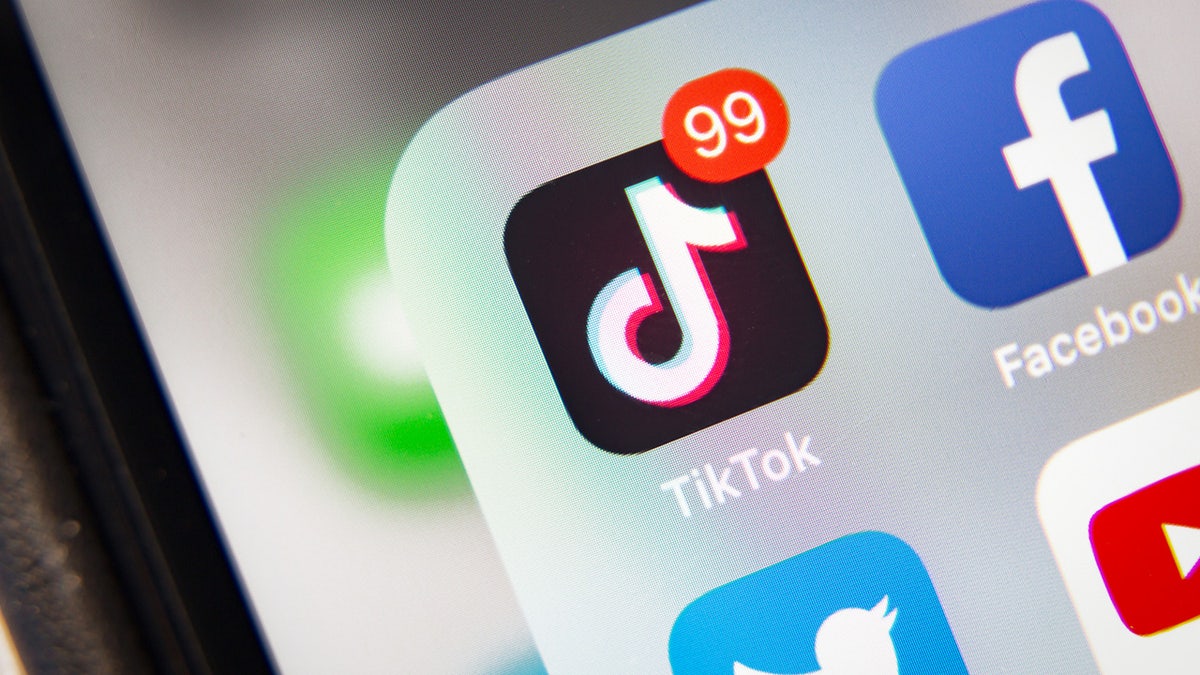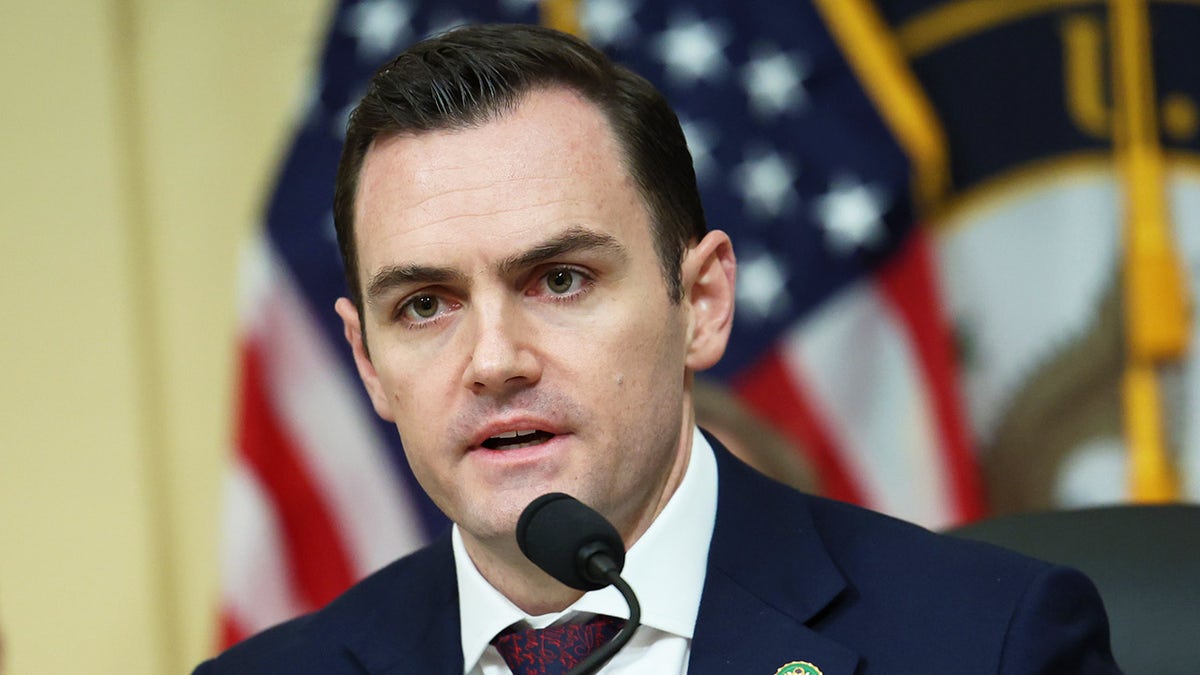What about the TikTok bill is so concerning?
The Big Weekend Show co-hosts discuss the fine print in the legislation and whether it could force a TikTok sale or ban.
As the Senate mulls a TikTok ban, the real fight could turn out to be between presumptive GOP nominee Donald Trump and Meta CEO Mark Zuckerberg.
Trump is not in favor of a House bill that would ban TikTok if the platform is not sold to a company without ties to the Chinese Communist Party. The position is a shift for the former president, but his rationale puts a spotlight on what many see as a years-long effort by Facebook parent company Meta to undermine TikTok.
Trump has said that U.S. lawmakers shouldn’t ban the ByteDance-owned platform simply because it would benefit Facebook.
"I found Facebook to be extremely dishonest, and what would happen is, if you banned TikTok, if you take it away… those people are going to go into Facebook. And Facebook, in my opinion, is worse than TikTok by a lot," Trump told Fox News host Howard Kurtz last month.
TRUMP WARNS LAWMAKERS THAT IF THEY BAN TIKTOK, USERS WILL FLOCK TO ‘WORSE’ PLATFORM FACEBOOK

As the Senate mulls a TikTok ban, the real fight could turn out to be between Presumptive GOP nominee Donald and Meta CEO Mark Zuckerberg. (Getty Images)
John McEntee, a conservative TikTok influencer with over 2.2 million followers who previously served in the Trump administration, feels the former president’s criticism is "putting it nicely" and that banning TikTok would only make Zuckerberg more powerful.
"TikTok has been decimating both Facebook and Google’s profits for years and has cut significantly into their market share. There’s nothing Big Tech would like more than to knock off their biggest competitor," McEntee told Fox News Digital.
McEntee asked in the rhetorical style he often uses to make points in his viral videos, "If Republicans were serious about taking on Big Tech, why are they doing exactly what Mark Zuckerberg wants?"
Indeed, a ban on TikTok appears to be exactly what Zuckerberg wants.
As the Wall Street Journal wrote in 2020, Meta founder and CEO Mark Zuckerberg has long implemented a "copy, acquire, and kill" strategy to defeat rival platforms. The 4-year-old article, which was published as Meta geared up to launch Instagram Reels, noted that the product was designed to directly "take on TikTok."
While Instagram Reels has been a success, it hasn’t exactly slowed down TikTok, which remains the preferred social media platform for most young people.
Zuckerberg, who learned to speak Mandarin and reportedly asked Chinese President Xi Jinping to give his unborn baby an honorary Chinese name in 2015, had long worked to make inroads with Beijing. But Zuckerberg’s messaging regarding China shifted, and the Facebook founder began criticizing the Chinese government as TikTok exploded in popularity.
"China is building its own internet focused on very different values and is now exporting their vision of the internet to other countries. Until recently, the internet in almost every country outside China has been defined by American platforms with strong free expression values. There’s no guarantee these values will win out," Zuckerberg said during a 2019 speech at Georgetown University before touting the Meta-owned WhatsApp and bashing TikTok.
"We’re beginning to see this in social media. While our services, like WhatsApp, are used by protesters and activists everywhere due to strong encryption and privacy protections, on TikTok, the Chinese app growing quickly around the world, mentions of these protests are censored, even in the U.S.," he continued. "Is that the internet we want?"
HOUSE PASSES BILL THAT COULD SEE TIKTOK BANNED IN US

The House of Representatives passed legislation last month requiring TikTok to divest itself of CCP control or face a ban in the U.S. (Fox News Digital)
The Georgetown speech is seen as a significant moment, as Zuckerberg publicly shifted to attacking TikTok and China. The Washington Post even published a complete transcript of his remarks. The following year, another Wall Street Journal report said Zuckerberg’s speech "stoked Washington’s fears about TikTok."
The WSJ reported that Zuckerberg met with several lawmakers to push the notion that TikTok "represents a risk to American values and technological supremacy" and told then-President Trump that "the rise of Chinese internet companies threatens American business" during an Oval Office meeting.
In 2020, Facebook was also a "critical, primary driver in helping to launch" American Edge, a political pro-tech advocacy group, the Washington Post reported. Around this time, Facebook’s influence appeared to be working, and Trump committed to signing an executive order to ban TikTok in 2020 before it was blocked by two federal judges. This occurred as concerns about TikTok’s privacy and data issues were firmly in the national zeitgeist.
In the years since, Meta irked conservatives when it famously suspended Trump’s Facebook and Instagram accounts following the events of Jan. 6. That came after it limited stories on the news feed related to the New York Post’s bombshell reporting on Hunter Biden’s scandalous laptop.
McEntee believes events that have occurred since Zuckerberg’s Georgetown speech prove his comments were disingenuous.
"Zuckerberg censored legitimate news stories during the 2020 election and then banned the sitting President of the United States from his platform. So yes, him talking about TikTok being a ‘risk to American values’ seems a bit disingenuous," McEntee said.
By 2022, the Washington Post reported that "Facebook quietly bankrolled small, grass-roots groups to fight its battles in Washington," and noted that American Edge was "aggressively attacking rival TikTok for its ownership by China."
A separate 2022 Washington Post piece reported that Meta paid GOP consulting firm Targeted Victory to "turn the public against TikTok."

Former President Trump disagrees with Congress' efforts to ban TikTok in the U.S. (iStock)
Trump recently posted on Truth Social, "If you get rid of TikTok, Facebook and Zuckerschmuck will double their business. I don't want Facebook, who cheated in the last Election, doing better. They are a true Enemy of the People!"
Florida-based entrepreneur Shawn Meaike, a vocal Trump supporter and hosts the "Close & Conquer" podcast, doesn’t want to see TikTok influencers run to Zuckerberg-owned platforms ahead of November’s critical presidential election.
"[Senate] can’t give Zuckerberg that type of power, especially before an election, and free speech is essential on TikTok or any platform," Meaike told Fox News Digital.
Meta did not immediately respond to a request for comment.
TikTok’s critics have long called it a national security threat. They have cited concerns about the Chinese government’s ability to leverage its power over Bytedance to access sensitive user data, even in the U.S., something the company has denied.
China hawks have also warned that the app’s popularity among young Americans gives the ruling Chinese Communist Party a platform for a mass influence campaign. At the same time, other lawmakers who are wary of the push to curb TikTok have cited First Amendment concerns and potential harm to small businesses who rely on it.
Supporters of the bill, like former Speaker Nancy Pelosi, D-Calif., have repeatedly insisted that the bill is not aimed at banning TikTok, but rather diminishing the threat it poses with its links to China.
Citizens United president David Bossie, who has served as an advisor to Trump, believes TikTok is "very dangerous" for Americans because of the ability for the Chinese Communist Party to access data and information. However, he feels that any solution that helps Meta also "benefits the left" because Zuckerberg would gain even more power and influence.
"Zuckerberg is much more interested in cornering the market on data than he is taking a position that benefits America. He says he wants to ban TikTok simply for PR purposes," Bossie told Fox News Digital.

The bill, led by House China Select Committee Chair Mike Gallagher, would block TikTok in the U.S. if its parent company, Bytedance, does not divest from it within 165 days of passage. (Kevin Dietsch/Getty Images)
Meanwhile, Wisconsin Republican Rep. Mike Gallagher, who chairs the China subcommittee, announced last month that he would not seek re-election and exit his post in the House early, on April 19. The move has infuriated Republicans because he doesn’t plan to vacate his seat early enough to trigger a special election.
Gallagher, who has long been notoriously tough on TikTok, is reportedly joining data analytics company Palantir when he bolts from the House. Palantir was founded by longtime Meta board member Peter Thiel.
Trump also used Truth Social to share his thoughts on Gallagher.
"Never forget our cowards and weaklings! Such a disgrace," Trump wrote to caption an article about Gallagher’s planned early exit.
Rep. Gallagher’s office declined to comment.
CLICK HERE TO GET THE FOX NEWS APP
Fox News Digital’s Gabriel Hays and Elizabeth Elkind contributed to this report.




















